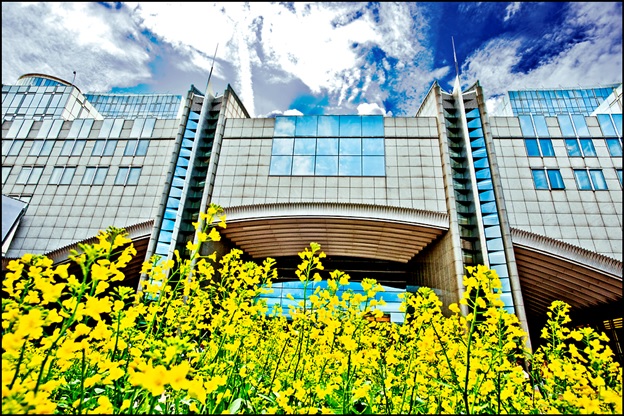There is a monumental task ahead of us post-COVID; medical and pharmaceutical industries must treat and vaccinate a large percentage of the global population; legislators must create viable policy moving forward and indeed businesses will be forced to adapt to a new normal. COVID-19 has sent shockwaves through the business world and companies have had to adapt to navigate the crisis in unprecedented ways. This article will discuss four guidelines for sustainability as the crisis is ongoing and indeed after it has passed.
Get faster
Companies are increasing the speed at which decisions are made, products are launched, and marketing content is produced. Michaels launched their curbside delivery in a week and Dyson developed and manufactured their ventilators within just 10 days.
This rapidity and nimbleness are not reserved for the manufacturing and retail areas; social media marketing has adapted also. With people staying at home, much more content is being consumed and so much more is being produced which can be a challenge given the series of lockdowns most countries are currently experiencing.
There are some practical ways to speed up processes. Many companies have ramped up the speed of decision making by having fewer meetings and fewer decision-makers in each meeting. Leaders in businesses have reassigned responsibility and driven closed-loop accountability. And marketers have rehashed old video content with free stock video to roll out “new” content more quickly.
Move away from Just in time practices.
Becoming leaner and more streamlined has been an obsession for businesses for many years now. And while “just in time” operational principles are profitable; they leave firms exposed to market volatility. The ability of a company to run with very limited financial slack is one of the reasons many companies were able to survive and bounce back from the financial crisis of 2008 -2013 but it also one of the reasons some companies have struggled during the pandemic.
Having some financial slack allows companies to insulate employees, suppliers, and customers at least for a time. While it is impossible for firms to set aside enough capital to weather a sustained, severe crisis, it is clear that being just a little “fatter” would have helped firms through some of this upheaval.
That is not to say that being lean has no place in a post-COVID world, far from it but there should be a move towards inventory optimization rather than inventory minimization. Which is something which is often missed by companies attempting to be lean.
Green capitalism
Consider being greener in how you operate, not just in an environmental sense but in a motivational sense. It is important to consider what the motivation is in your business and we can see the tumult caused by COVID as an opportunity to reevaluate the focus of firms and capitalism. Does your firm exist just to enhance shareholder profit or is there a broader incentive? If not, you should consider adjusting your focus from shareholders to stakeholders.
Key stakeholders include customers, employees, suppliers, communities, governments, and investors which are all crucial to a company’s success. If employees are let go solely to provide greater profits for investors then customers will take notice and it will damage a brand. Some companies have performed excellently in this regard, notably Ally Financial and Unilever; and some are throwing their staff under the bus.
Explore the cooperative approach whereby stakeholders and shareholders are one and the same. The effectiveness of this has been demonstrated by KBC which has a core of shareholders who are local financial and rural cooperatives and this partnership has caused the Flemish region where these coops are based to thrive.
Increase focus on partnership
Don’t try to go it alone, leverage connections rather than competing for the biggest slice of the pie. If we have learned anything from the pandemic it is the power of collaboration. Vaccines which usually take 10 years to develop and test have taken less than a year due to collaboration between pharmaceutical companies, national governments, and the WHO.
The commercial sector can learn a lot from this and as Professor Michael Butler says “Collaboration is a fruitful way forward because it brings together inter-disciplinary experts who collectively have creative insight to identify solutions”
There are financial benefits such as boosting domestic or export sales, tendering for larger contracts, or cutting costs by sharing resources. There are also benefits on the human capital side, developing employees’ skills and capabilities, safeguarding jobs, increasing employment, and encouraging staff motivation.
It is clear that the pandemic has been catastrophic for businesses around the world but it is possible to adapt your business for sustainability and still make it through the other side. Sustainability is built on the assumption that developing strategies such as those mentioned above foster company longevity. We are all in this together and it will be the companies that handle this crisis sustainably rather than grubbing for every cent which will be able to hold their heads high, with a stronger brand image come the end of it.



